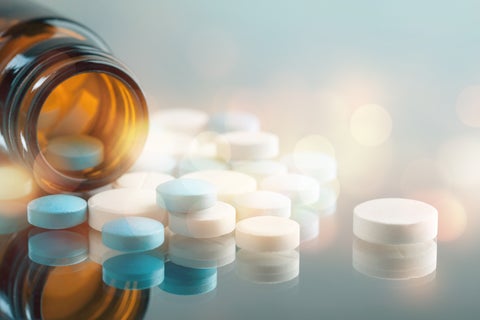
As makers of THC-free CBD we are confident in so much of what we share with our customers and our readers regarding 'all things CBD,' however first and foremost, nothing shared in this blog post is meant to take the place of talking to your doctor directly about the benefits and possible interactions with any of your current medications. Before adding any supplement to your regimen, be sure to discuss it with your physician.
CBD or Cannabidiol has gained a great deal of attention recently for its’ potential uses. A few of these possible uses are for insomnia, anxiety, pain and inflammation. Because of the broad nature of uses, all types of people ranging in lifestyles and ages are turning to CBD for a host of reasons.
Many of you ask what are my risks?
Well, let’s start with the fact that CBD has been labeled by the FDA as Generally Recognized As Safe (GRAS). CBD typically produces minor side effects if any, especially at low dosages as suggested by most brands. So if you are not prescribed and taking any other type of medication, the risk of trying CBD is minimal. The most common side effects documented are stomach upset, drowsiness, dry mouth and reduced appetite.

Regarding your prescription medications, it's important to understand that there can be some risk of interaction with CBD. As a matter of fact, there are “interactions” between all drugs! Almost all drugs and supplements you take must be processed by the liver to break them down and remove them from the body. This is because different drugs use different pathways to be metabolized. However, many share a pathway or enzyme called Cytochrome P450. Cytochrome P450 is a limited pathway, meaning that it can’t process everything at once. So, when taken together, certain drugs and CBD must compete to use this pathway. Also, it is known that when CBD is present, it will be processed first making other drugs “wait in line”. This overload of the pathway can potentially lead to either too much, or not enough of a particular drug in your bloodstream. Depending on the drug, this can become problematic.
Gold Medal CBD™ is a broad-spectrum cannabis product with 0.00% THC and in this article we will only address those drugs that may be affected by THC-free CBD products only. If you choose a CBD product that also contains THC, then you should research even further. This is because there is a longer list of medications that can be interfered with by THC. Gold Medal CBD™ contains 0.00% THC.
Many “interactions” can be managed by timing each specific dose. Ask your physician, they should be able help you with an appropriate schedule. However, the following drugs do have potentially serious side effects when taken with CBD products. Extreme caution is necessary, and your physician may wish to monitor your blood levels.
- Warfarin – a common blood thinner
- Amiodarone – a heart rhythm medication
- Levothyroxine – a thyroid medication
- Clobazam, Lamotrigine and Valproate – 3 seizure medications.
To be as transparent as we can, CBD may be completely safe when used in conjunction with your existing medications we want to be sure you're checking with your physician to minimize any risks – especially with the drugs mentioned above.
If you have done your homework and you're 100% ready to give CBD a try, we'd love for you to choose one of our THC-free products and let us know how things go for you. We offer a page on the website with some info-packed FAQS as well as the benefits of CBD. You can also read reviews from some of our happy customers and supporters and stop by our Gold Medal CBD™ Instagram or Facebook page to catch up on everything happening in our CBD community.
Disclaimer
Gold Medal CBD™ products are not intended to diagnose, treat, cure or prevent any disease.





